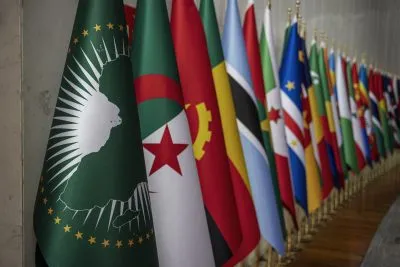Africa’s development needs are greatly aligned with Islamic finance given the continent’s infrastructure deficit, paving the way for more sharia-compliant products on the continent, according to Imran Mufti, partner at Riyadh-based law firm Hogan Lovells.
“Being attached to tangible infrastructure and development projects and assets which are much needed in Africa is in line with the ethos of Islamic finance,” he said. “Moreover, there is plenty of liquidity in the GCC region and the Middle East looking for viable investments. Africa offers investors there many choices.”
Mufti’s statement comes following three sukuk – or Islamic bonds – were issued in West Africa on the 18th October from Côte d’Ivoire, Senegal and Togo. Other sukuk came from Senegal in 2014 and another from the Côte d’Ivoire in 2015, making five in total.
Hogan Lovells advised the Islamic Corporation for the Development of the Private Sector (ICD) as lead arranger on all five sukuk issues. The total value of sukuk issued between 2014 and 2016 amounted to CFA766bn ($1.3bn).
Senegal’s first sukuk in 2014 was for CFA100bn ($166m) at 6.25% and will mature in 2018. Meanwhile, Côte d’Ivoire’s sukuk issued in 2015 was for CFA150bn ($250m) with a yield of 5.75%. In the most recent issues, Senegal’s CFA200bn ($332m) 2026 sukuk had a yield of 6%, while Côte d’Ivoire’s 2023 sukuk achieved a yield of 5.75% for CFA$160bn ($266m), and Togo’s 2026 issue of CFA156bn ($259m) had a yield of 6.5%.
Each sharia-compliant bond was listed on the regional bourse, the Bourse Régionale des Valeurs Mobilières (BRVM), which also serves Benin, Burkina Faso, Guinea-Bissau, Mali and Niger. The sukuk were all linked to government-owned buildings.
Sukuk, although similar to traditional bonds, are linked to specific assets of which investors have partial ownership. Holders of sukuk have beneficial ownership of the underlying assets and can share in the revenue created by the assets, as opposed to receiving interest, as is the case with traditional debt issuance. Interest – or riba as it is known in Islamic finance – is forbidden under sharia law.
According to data from consulting firm EY, plugging Africa’s infrastructure deficit requires around $90bn in investment each year for the next ten years. Sukuk can be an affordable way for African governments to fill the gap, especially given the relatively low yields offered.
“Moreover, sukuk are open to sharia compliant and non-sharia compliant investors, so the pool that this type of debt can tap into is much larger than with conventional bonds,” says Mufti. While Mufti is unable to provide exact figures, each sukuk was oversubscribed, he says.
The sukuk come at a time when sovereign Eurobond issues out of Africa have been subdued given global economic headwinds. At the same time, yields on African Eurobonds have been increasing given the risk-off sentiment of investors and imminent Fed tapering in the US.
So far this year, South Africa sold $1.25bn of ten-year notes in April. Ghana, Nigeria and Tanzania have all expressed interest in issuing Eurobonds this year but nothing has come to fruition as yet.
“The latest sukuk issues’ success and tight yields – given difficult market conditions – show that investors are comfortable with sukuk from Africa,” says Mufti. “There will be much more sukuk out of the continent especially now as investors become increasingly more comfortable with Islamic finance in the region.”
Kanika Saigal
Want to continue reading? Subscribe today.
You've read all your free articles for this month! Subscribe now to enjoy full access to our content.
Digital Monthly
£8.00 / month
Receive full unlimited access to our articles, opinions, podcasts and more.
Digital Yearly
£70.00 / year
Our best value offer - save £26 and gain access to all of our digital content for an entire year!
 Sign in with Google
Sign in with Google 


